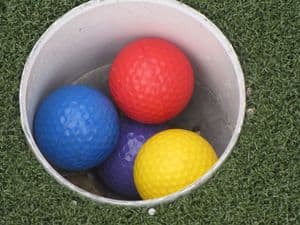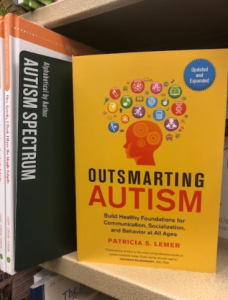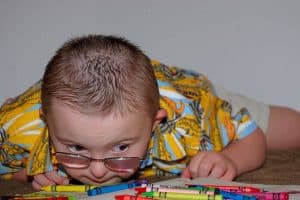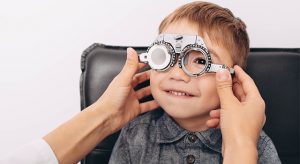Have you been told your child has a sensory processing disorder (SPD)?
Sensory processing disorders (SPD) can be life-changing, but many eye doctors can now offer you a range of options to best manage your child and allow them to maximize their engagement with the world.
SPDs are particularly challenging to diagnose for the following reasons:
- Sensory processing disorders can overlap with or be misdiagnosed as ADHD or Autism (ASD).
- Convergence Insufficiency (CI) or other treatable vision problems can overlap with or be misdiagnosed as SPD.
A timely and comprehensive multidisciplinary evaluation is critical for any child who shows signs or symptoms of SPD.
A 2009 study found that 1 in every 6 children may have sensory issues that make it difficult to learn and function in school.
While sensory processing issues are often seen in children with ASD, they can also be associated with ADHD, Obsessive Compulsive Disorder (OCD), or with other developmental delays.
Moreover, sensory processing issues can occur independently, with no other diagnosis at all. For this reason, it is important that a diagnosis is only made after comprehensive evaluations that provide a detailed picture of the presenting behavior.
If you are concerned about your child’s SPD, find an eye doctor near you that can help you to significantly improve the life of your child.
SEE RELATED: Vision and Non-Verbal Learning Disorder (NVLD)
Behaviors related to SPD
Children who are overly-sensitive to sensory stimulation typically present with the following behaviors:
- Unable to tolerate bright lights and loud noises, such as ambulance sirens
- Refuse to wear clothing or shoes because they feels scratchy or irritating (even after cutting out all the tags and labels), or “too tight”
- Easily distracted by background noises that others don’t seem to hear
- Fearful of surprise touch, and avoid hugs and cuddling even with familiar adults
- Overly fearful of swings and playground equipment
- Often have trouble knowing where their body is in relation to other objects or people
- Often bump into people and objects and appear clumsy
- Difficulty sensing the amount of force they’re applying (i.e. they may rip the paper when erasing, pinch too hard, or slam down objects)
- Run away or bolt from whatever is distressing them
- Extreme meltdowns when overwhelmed
Meanwhile, under-sensitive children require additional sensory stimulation. These children typically present with the following behaviors:
- A constant need to touch people or textures, even when it’s not socially acceptable
- Inability to understand personal space
- An extremely high tolerance for pain
- Inability to understand their own strength
- Very fidgety and unable to sit still
- Enjoy jumping, bumping and crashing activities
- Crave fast, spinning and/or intense movement
- Enjoy being tossed in the air and jumping on furniture and trampolines
- Enjoy deep pressure like tight bear hugs
Many of these behaviors can appear as “negative behaviors”, or similar to the hyperactive behaviors associated with ADHD, while in fact, the child cannot control his need for a certain degree of sensory input as he suffers from SPD.
Treatment for SPD
Although there is no medication to treat SPD, there are effective therapies, as well as practical changes that can be made to help your child at home and at school.
Vision therapy
Vision therapy is a highly effective treatment for children with SPD.
After completing a vision therapy program, many parents report an increase in:
- Self-confidence
- Social competence
- Self-esteem
- Academic performance
Vision therapy creates objective and observable improvements in the developmental abilities of a child SPD.
Vision therapy aims to improve:
- Visual skills and/or visual processing
- Visual-motor, sensorimotor and motor skills
- Hand-eye coordination
- Sensory integration
Gains in fundamental developmental abilities allow the child to experience greater ease and satisfaction while interacting with the physical world and those around him.
If you have been told your child has a sensory processing disorder, schedule an appointment with an eye doctor with experience in children’s vision and vision therapy.
LEARN MORE: Vision for Special Needs
An eye examination will allow you develop a greater understanding of your child’s challenges, and to possibly begin a vision therapy program that will facilitate your child’s overall success.










